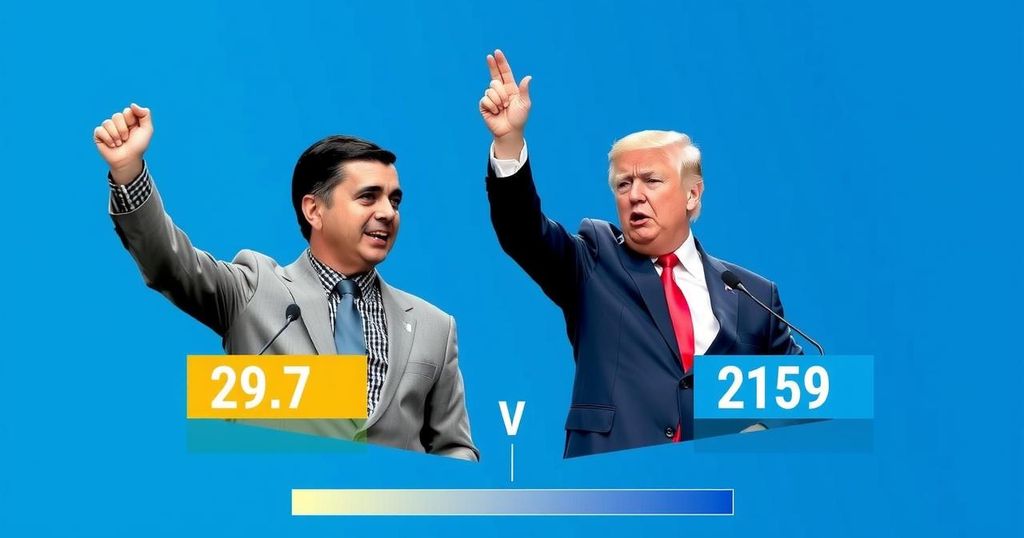Uruguay’s Presidential Runoff: A Contest of Ideologies and Governance

Uruguay’s presidential runoff features a close race between incumbent Álvaro Delgado and challenger Yamandú Orsi. Following a first round without a majority victor, both candidates address pressing issues such as crime and social spending amidst rising voter interest. With both politicians competing for diverse support, the election is pivotal in determining the country’s future governance.
Uruguay has entered a highly competitive phase in its presidential election, marking a shift from what was previously considered a mundane political race. Following a first round of voting where no candidate secured a majority, incumbent Álvaro Delgado of the National Party faces off against Yamandú Orsi from the Broad Front in a closely contested runoff scheduled for Sunday. This election evokes significant public interest as the two candidates represent contrasting political ideologies, with deep-seated implications for the nation’s future.
The first round revealed that Orsi’s Broad Front received 44% of the votes, while Delgado’s National Party garnered 27%. The combined support for other conservative parties within the governing coalition, particularly the Colorado Party, adds complexity to Delgado’s position, giving him a strategic advantage in the runoff. Polls indicate a tight race, with many voters still undecided amidst various social issues dominating the discourse. The key themes of this election revolve around social spending, crime prevention strategies, and a cautious approach to governance, setting it apart from the confrontational political climates observed in other regions such as the United States.
Amid rising crime rates, both candidates are focusing on public safety; Delgado promotes rigorous law enforcement policies, while Orsi leans towards community-based crime prevention models. Delgado, a seasoned party member and former Secretary of the Presidency, pledges to uphold the current administration’s accomplishments, appealing to voters’ desire for continuity. Meanwhile, Orsi aims to connect with the legacy of his influential predecessor, former President José Mujica, aiming for a balanced representation of the left without radical shifts in policy.
In a climate marked by economic stability and improving inflation rates, the electoral race is reflective of broader sentiments among the electorate that yearn for collaborative governance. Notably, both candidates have expressed intentions to ensure a smooth transition should either prevail. Their mutual respect highlights a commitment to national unity in a politically diverse environment.
Uruguay’s presidential elections are pivotal moments that shape the nation’s governance and policy direction. The current political landscape reflects a contest between conservative and progressive ideologies, particularly as citizens navigate issues like economic growth, crime, and social equity. Historically, the Broad Front has been instrumental in advancing progressive reforms, while the National Party has forged a reputation for stability and business-friendly policies. This election cycle is particularly significant due to the recent oscillation of power between these contrasting political forces within the backdrop of social reforms and a shifting economy.
The upcoming presidential runoff in Uruguay encapsulates the nation’s political diversity and the electorate’s desire for effective governance. As candidates Álvaro Delgado and Yamandú Orsi engage in a fierce contest marked by competing ideologies and policy proposals, the outcome will significantly influence Uruguay’s socio-economic trajectory. Voter engagement and active participation will be crucial in shaping the future governing landscape, as both sides emphasize the importance of collaboration and consensus in a politically charged environment.
Original Source: www.cnn.com







